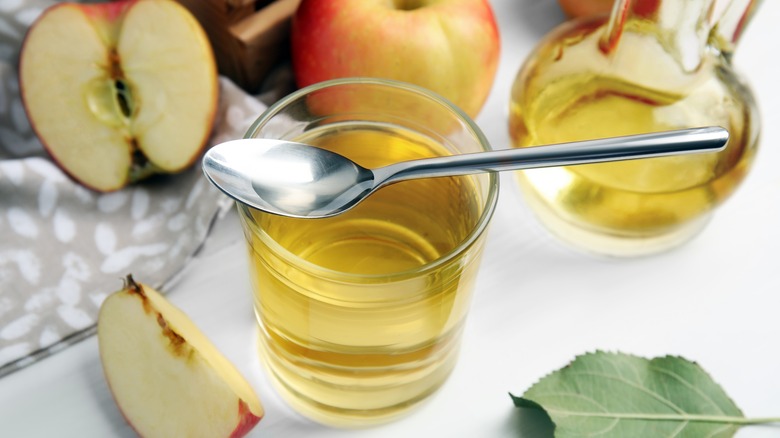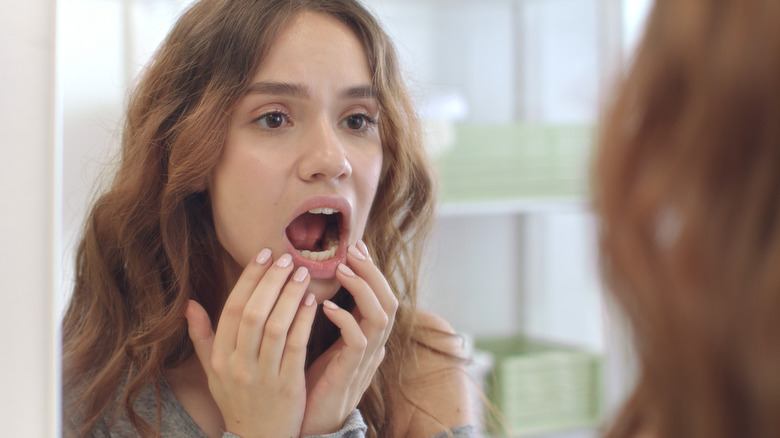You Should Stop Drinking Apple Cider Vinegar If This Happens To You
The uses for apple cider vinegar go well beyond flavoring your salad dressing. According to Healthline, apple cider vinegar may be used as a natural deodorant, hair rinse to boost its shine, cleaning agent, even as a trap to lure unwanted pests such as fruit flies or fleas. Still, apple cider vinegar is most often enjoyed as a superfood ingredient due to its touted health benefits — everything from lowering blood sugar and cholesterol levels to weight management (via Medical News Today).
Apple cider vinegar is the product of apples, water, and yeast twice fermented (via Medical News Today). By the end of 30 or more days left sitting at room temperature, the yeast has converted the apple's sugar into alcohol and bacteria has then converted it to vinegar.
Due to its highly acidic content, apple cider vinegar is used by some people as an at-home teeth whitening remedy (via Verywell Health). While the acids in vinegar have been shown to have a bleaching effect on your teeth, as well as an antimicrobial effect, drinking apple cider vinegar regularly for its oral health benefits may be doing more harm than good.
Be on the lookout for signs of tooth erosion
It turns out that apple cider vinegar's high acidity level actually may cause damage to your teeth. According to WebMD, the human body maintains an average pH level of 7.40. Any food or drink item sitting below a pH of 4.6 is considered acidic. The pH level of apple cider vinegar falls between 2.5 and 3.0, making it highly acidic. Much like soda or coffee, beverages that are highly acidic can cause enamel erosion on our teeth (via Ethos Orthodontics).
Highlighting the extent to which apple cider vinegar can cause tooth decay, a 2012 case report outlined the extensive tooth wear found on a young teenage girl who consumed a glass of apple cider vinegar daily.
If you are regularly consuming apple cider vinegar, be on the lookout for tooth sensitivity and yellow discoloration, which can be signs of damage to tooth enamel (via Verywell Health). Experts at Healthline suggest drinking no more than 2 diluted tablespoons per day through a straw to minimize direct contact with teeth. Also, be sure to rinse out your mouth immediately after drinking and to wait 30 minutes before brushing your teeth in order to prevent tooth erosion.


